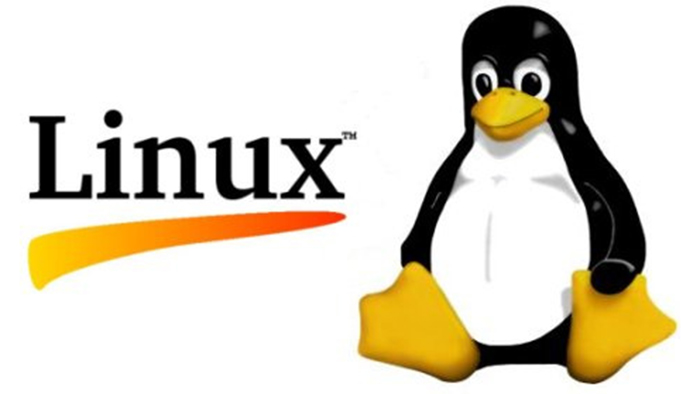The benefits of Linux servers
Here's why you might want to look at putting open source servers in your data centre

The debate between installing Windows or Linux servers is one that's been going on among IT professionals for quite some time. While supporters of Window will firmly support its safety and familiarity, the more open-minded sysadmins would rather flock to Linux for its open source goodness.
But is one platform truly better than its competitor, or is it more of a case of preference rather than business freedom? We take a look at what each platform offers and whether open source is the way to go for all businesses.
Take back control
Whether to make the switch to Linux servers has historically caused a lot of debate, mainly because Windows is the more comfortable, secure and "safe" option. IT professionals supporting open source have a lot of negativity for Microsoft because the company doesn't offer flexibility in the same way as Linux, perhaps over-zealously policing the platform and directing sysadmins towards what they can and can't do with their servers.
Linux offers a get-out for this closed ecosystem, allowing businesses to use multiple vendors to provide their services and avoiding the dreaded vendor lock in. On the other side of the coin though, organisations moving to a Linux-only environment may well find the services they once relied on aren't supported by Linux, leaving them in a bit of a quandry.
More affordable
The first thing that any Linux fan will tell you when asked about its benefits is that unlike Microsoft's OS, it's free to install. While this is true for desktops, it's slightly more complicated in the server space.
You can technically download and run Linux in your data centre for absolutely nothing, but businesses will need support services in case things go off the rails, and those aren't free. With that being said, however, Linux is almost always cheaper to run than Windows Server, as there are no per-seat licensing costs.
More stable
Despite numerous improvements to Windows Server over the past few years, many people still view Linux as a more stable and reliable operating system, with a lower risk of crashes and errors. Linux can also handle more simultaneous processes and don't need to be restarted as frequently, leading to less overall downtime.
Get the ITPro daily newsletter
Sign up today and you will receive a free copy of our Future Focus 2025 report - the leading guidance on AI, cybersecurity and other IT challenges as per 700+ senior executives
This is due in large part to the fact that it's incredibly stripped-back and efficient. Because there's very little in a Linux distro that doesn't absolutely need to be there, there's less to go wrong and throw your data centre into chaos.
Light on resources
Linux has a reputation for being incredibly lightweight, and it's a well-earned one. Most Linux distros can pretty much run on a toaster, and this is just as applicable to server software as it is to desktop operating systems.
You can run a Linux server on a machine as comparatively under-powered as the Raspberry Pi, which means it's incredibly easy to get servers spun up without necessarily needing stacks of expensive hardware to do so. This isn't likely to be much of a concern for larger enterprises, but if you're a small business or startup, Linux could slash your initial IT CapEx costs.
Improved security
Another major selling-point of Linux servers (and open source software in general) is a belief that they're inherently more secure than their counterparts. The theory is that because everyone is free to examine the source code, bugs are found more quickly and patches can be pushed out by the community, without waiting for the manufacturer to roll out a fix.
While this doesn't always hold true - the Heartbleed bug is proof of that - it must be said that Linux generally has less colossal security blunders than other operating systems, and is often held to be more resilient by cyber security experts.

Clare is the founder of Blue Cactus Digital, a digital marketing company that helps ethical and sustainability-focused businesses grow their customer base.
Prior to becoming a marketer, Clare was a journalist, working at a range of mobile device-focused outlets including Know Your Mobile before moving into freelance life.
As a freelance writer, she drew on her expertise in mobility to write features and guides for ITPro, as well as regularly writing news stories on a wide range of topics.
-
 The UK government wants quantum technology out of the lab and in the hands of enterprises
The UK government wants quantum technology out of the lab and in the hands of enterprisesNews The UK government has unveiled plans to invest £121 million in quantum computing projects in an effort to drive real-world applications and adoption rates.
By Emma Woollacott Published
-
 Netgear WBE710 review
Netgear WBE710 reviewReviews The compact WBE710 delivers great cloud management features and a good turn of Wi-Fi 7 speed – but it does have a premium price tag
By Dave Mitchell Published
-
 Tiny11 review: Windows 11 with only 2GB of RAM
Tiny11 review: Windows 11 with only 2GB of RAMReview A version of Windows 11 for older machines that don't meet the full requirements
By Nik Rawlinson Published
-
 Red Hat Enterprise Linux becomes foundational operating system for Cohesity Data Cloud
Red Hat Enterprise Linux becomes foundational operating system for Cohesity Data CloudNews New strategic partnership between Red Hat and Cohesity aims to drive innovation in the data security and management space
By Daniel Todd Published
-
 Ubuntu shifts to four-week update cycle
Ubuntu shifts to four-week update cycleNews Critical fixes will also come every two weeks, mitigating the issues involved with releasing prompt patches on the old three-week cadence
By Richard Speed Published
-
 AlmaLinux follows Oracle in ditching RHEL compatibility
AlmaLinux follows Oracle in ditching RHEL compatibilityNews Application binary compatibility is now the aim with 1:1 now dropped
By Richard Speed Published
-
 How big is the Windows 10 cliff-edge?
How big is the Windows 10 cliff-edge?ITPro Network With some comparing the upcoming Windows 10 end of life to Windows XP, we ask members of the ITPro Network for their insight
By Jane McCallion Published
-
 Everything you need to know about the latest Windows 11 updates - from bug fixes to brand-new features
Everything you need to know about the latest Windows 11 updates - from bug fixes to brand-new featuresNews Two new cumulative updates are on the way and will be installed automatically on Windows 10 and Windows 11 machines
By Rory Bathgate Published
-
 How to download a Windows 11 ISO file and perform a clean install
How to download a Windows 11 ISO file and perform a clean installTutorial Use a Windows 11 ISO to install the operating system afresh
By John Loeppky Published
-
 We could all benefit from better Windows and macOS accessibility features
We could all benefit from better Windows and macOS accessibility featuresOpinion Today’s accessibility features can help you work through a nasty injury, but there’s still plenty of room for improvement
By Barry Collins Published
